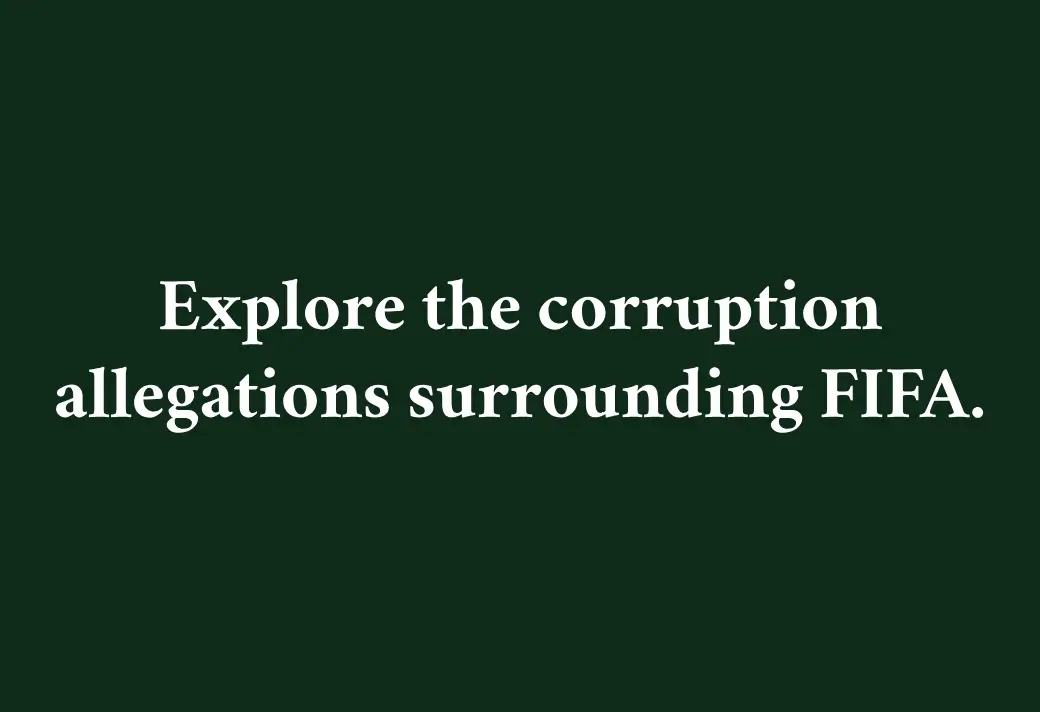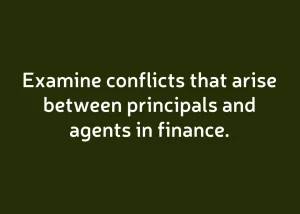The Federation Internationale de Football Association (FIFA) is the international governing body of football, and has long been known as one of the most powerful and influential organizations in the world of sports.
However, in recent years, FIFA has been mired in a corruption scandal that has rocked the football world and brought into question the integrity of the organization. With allegations of bribery, fraud, and money laundering, this scandal has shed light on the darker side of the world’s most popular sport.
In this article, we will delve into the details of the FIFA corruption scandal, exploring the various allegations and scandals that have tarnished the reputation of this once highly-respected institution.
From the infamous bidding process for the 2018 and 2022 World Cups to the indictment of top officials, we will uncover the depths of the corruption within FIFA and the impact it has had on the global football community.
With multiple investigations and legal proceedings still ongoing, the full extent of the scandal has yet to be revealed. Join us as we explore the FIFA corruption scandal and the repercussions it has had on the world’s most beloved sport.
Earn a certificate in your dream career for an affordable price at IAP Career College today!
FIFA corruption scandal: What happened?
The FIFA corruption scandal sent shockwaves throughout the world of international football, exposing a web of bribery, fraud, and money laundering that plagued the highest levels of the sport.
The scandal unfolded in 2015, when several high-ranking FIFA officials were arrested on charges of corruption by the United States Department of Justice.
The investigation revealed a complex network of illicit payments and kickbacks, with allegations ranging from bribery in the bidding process for hosting the World Cup to the sale of lucrative marketing and broadcasting rights.
The scandal not only tarnished FIFA’s reputation but also raised significant questions about the governance and transparency of the organization.
The shocking allegations against FIFA
The FIFA corruption scandal shed light on numerous shocking allegations that rocked the world of international football. These allegations unveiled a dark underbelly of corruption, with claims of officials accepting bribes in exchange for awarding hosting rights for prestigious tournaments, such as the World Cup.
Additionally, there were allegations of money laundering and illicit payments surrounding the sale of lucrative marketing and broadcasting rights. These revelations not only cast a shadow on the integrity of FIFA, but they also raised serious concerns about the fairness and transparency within the organization.
The FIFA corruption scandal served as a wake-up call for the need to address systemic issues and implement stricter regulations to safeguard the integrity of the sport.
Uncovering the truth behind bribery
The FIFA corruption scandal brought to the forefront the pervasive issue of bribery within the world of international football. Bribery, as a form of corruption, involves the offering, giving, receiving, or soliciting of something of value with the intention to influence the actions or decisions of individuals in positions of power.
It is a clandestine practice that can undermine the integrity of organizations and compromise fair competition. Uncovering the truth behind bribery requires a thorough investigation into the intricate networks of illicit transactions, secret agreements, and covert dealings.
It is crucial to analyze the motivations and incentives that drive individuals to engage in such unethical behavior, as well as identify the systemic weaknesses and loopholes that enable bribery to persist.
By understanding the underlying factors and dynamics of bribery, we can develop comprehensive strategies to combat this detrimental practice and foster an environment of trust, transparency, and accountability within the realm of international football and beyond.
Bribery, kickbacks, and cover-ups
The FIFA corruption scandal shed light on not only the issue of bribery but also the presence of kickbacks and cover-ups within the organization. Kickbacks refer to the illicit practice of providing undisclosed payments or favors in exchange for preferential treatment or business opportunities.
These hidden financial arrangements can distort fair competition and undermine the principles of transparency and accountability. Cover-ups, on the other hand, involve deliberate efforts to conceal wrongdoing or protect individuals involved in corrupt activities.
These actions obstruct justice and perpetuate a culture of impunity. Addressing the complex web of bribery, kickbacks, and cover-ups requires a multifaceted approach that involves strengthening governance structures, implementing robust oversight mechanisms, and fostering a culture of integrity and ethical behavior within FIFA and the broader football community.
Only through concerted efforts and a commitment to transparency can we hope to prevent further instances of corruption and restore trust in the sport.
The role of top officials
The role of top officials within organizations like FIFA is crucial in ensuring transparency, accountability, and ethical conduct. In light of the FIFA corruption scandal, it becomes evident that the actions and decisions made by these officials can have far-reaching consequences.
It is the responsibility of top officials to uphold the values of integrity, fairness, and honesty in their decision-making processes and to set an example for others within the organization.
They must establish and enforce effective governance structures, promote a culture of ethical behavior, and implement robust oversight mechanisms to prevent corruption and misconduct.
By exercising their authority with integrity and acting in the best interest of the organization and its stakeholders, top officials can help restore trust and confidence in the organization, while also deterring future corruption incidents from occurring.
How did it all unravel?
The FIFA corruption scandal sent shockwaves through the world of international football, exposing a web of deceit, bribery, and unethical conduct that had been festering within the organization for years.
The unraveling of this scandal was a result of extensive investigations by law enforcement agencies and media organizations, who painstakingly pieced together the puzzle of corruption allegations surrounding FIFA.
Through undercover operations, wiretaps, and whistleblower testimonies, the intricate network of bribes, kickbacks, and illicit deals was exposed, revealing a culture of corruption that had infiltrated the highest levels of the organization.
The scandal brought to light the extent to which FIFA officials had exploited their positions of power for personal gain, compromising the integrity of the sport and undermining the trust of fans worldwide.
This watershed moment in the history of FIFA served as a wake-up call for the need to reform the governance and accountability structures within international sports organizations, and to restore the values of transparency and ethical conduct that should be at the heart of the game.
The global impact of corruption
The FIFA corruption scandal not only had a profound impact on the world of football, but it also shed light on the global consequences of corruption. Corruption, in any form, erodes trust, undermines institutions, and hampers economic development.
The scandal involving FIFA highlighted the far-reaching effects of corruption, from the loss of public funds to the distortion of fair competition and the erosion of ethical standards.
Beyond the direct consequences felt within the organization, the FIFA corruption scandal served as a stark reminder of the urgent need for robust anti-corruption measures, both within the sports industry and on a global scale.
Governments, businesses, and civil society must work together to combat corruption, as its effects reverberate far beyond the realms of sports and can have severe repercussions on social and economic progress worldwide.
FIFA’s response to allegations
In response to the allegations surrounding the FIFA corruption scandal, the organization has taken steps to address the issues and restore trust in their operations. FIFA established an independent Ethics Committee to investigate the allegations and hold individuals accountable for any wrongdoing.
Additionally, they implemented stricter financial controls and transparency measures to prevent future instances of corruption. FIFA has also strengthened their collaboration with law enforcement agencies and international organizations to ensure that appropriate actions are taken against those involved in corrupt practices.
Through these efforts, FIFA aims to rebuild their reputation and demonstrate their commitment to promoting integrity and fair play within the world of football.
The ongoing investigation and consequences
As the ongoing investigation into the FIFA corruption scandal continues, the consequences for those implicated in the alleged misconduct are becoming increasingly apparent. Several high-ranking officials within FIFA have already faced legal proceedings, resulting in arrests, convictions, and bans from the sport.
The severity of these consequences sends a clear message that corruption within the organization will not be tolerated. Furthermore, the scandal has led to a widespread reevaluation of FIFA’s governance and operational practices, prompting calls for comprehensive reforms to ensure greater transparency and accountability.
The investigation serves as a wake-up call for FIFA and the football community as a whole, highlighting the need for a renewed commitment to ethical conduct and the promotion of integrity in all aspects of the sport.
Lessons learned from the scandal
The FIFA corruption scandal has served as a catalyst for significant lessons to be learned within the realm of international football governance. Firstly, the scandal underscores the importance of robust and independent regulatory bodies to effectively monitor and address any potential corruption and misconduct within sports organizations.
This necessitates the establishment of clear codes of conduct and ethical guidelines that all individuals within the organization must adhere to, with severe consequences for any violations. Additionally, the scandal emphasizes the need for enhanced transparency in financial transactions and decision-making processes to mitigate the risk of corruption.
By implementing stringent financial controls and requiring open and accountable reporting, organizations can create a culture of integrity and discourage illicit activities. Moreover, the scandal has demonstrated the significance of actively promoting a strong ethical culture within the organization, where individuals are encouraged to speak out against wrongdoing and are protected from retaliation.
By fostering an environment that values ethical behavior and encourages whistleblowing, organizations can proactively address corruption issues and prevent them from escalating. Ultimately, the FIFA corruption scandal serves as a powerful reminder that the fight against corruption requires continuous vigilance and commitment to upholding the principles of integrity, fairness, and accountability within the world of sports governance.
Conclusion: FIFA corruption scandal
In light of the extensive investigation and evidence presented, it is clear that the corruption scandal surrounding FIFA has had a profound impact on the organization and the sport of soccer as a whole.
While the allegations and charges are troubling, it is important to continue to hold those in positions of power accountable and strive towards a more transparent and ethical system within FIFA.
As fans and supporters of the sport, it is our responsibility to demand better and ensure that the beautiful game is not tainted by corruption.
FAQ
What were the specific corruption allegations that led to the uncovering of the FIFA scandal?
The specific corruption allegations that led to the uncovering of the FIFA scandal included bribery, money laundering, racketeering, and fraud.
It was revealed that FIFA officials and executives had accepted millions of dollars in bribes from sports marketing companies in exchange for granting lucrative broadcasting and sponsorship rights for various football tournaments.
These allegations were brought to light by a series of investigations conducted by law enforcement agencies, including the United States Department of Justice. The scandal exposed deep-rooted corruption within FIFA and led to the indictment and conviction of numerous high-ranking officials.
How did the corruption scandal impact the reputation of FIFA and the sport of soccer globally?
The corruption scandal had a significant negative impact on both the reputation of FIFA and the sport of soccer globally.
The scandal exposed widespread corruption within FIFA’s top leadership, tarnishing the organization’s image as the governing body of the world’s most popular sport.
The credibility and integrity of FIFA were called into question, leading to a loss of trust from fans, sponsors, and the general public.
The scandal also highlighted the pervasive nature of corruption in soccer, creating a perception that the sport is plagued by unethical practices. This damaged the reputation of soccer as a whole, undermining its status as a fair and transparent game.
What were the consequences faced by individuals implicated in the FIFA corruption scandal?
Individuals implicated in the FIFA corruption scandal faced various consequences, including criminal charges, fines, bans from football activities, and damage to their reputations.
Some high-ranking officials were arrested and convicted of offenses such as bribery, money laundering, and racketeering. They were sentenced to prison terms and hefty fines.
Additionally, several officials were banned from participating in any football-related activities, including serving as officials or coaches.
The scandal led to a loss of trust in FIFA and the football community, tarnishing the organization’s reputation and highlighting the need for reform in its governance and accountability structures.
How did the investigation into the FIFA corruption scandal unfold, and what were some key findings?
The investigation into the FIFA corruption scandal unfolded in 2015 when several high-ranking FIFA officials were arrested by Swiss authorities. The investigation, led by the United States Department of Justice, revealed widespread corruption within FIFA, including bribery, money laundering, and fraud.
Key findings included evidence of bribes being paid in exchange for votes to host the World Cup and the involvement of FIFA officials in various illegal activities. The investigation also led to the indictment and arrest of several FIFA officials, including former president Sepp Blatter. Ultimately, the scandal resulted in significant reforms within FIFA to address the corruption issues.
Has FIFA taken any measures to prevent future corruption and restore its credibility since the scandal was exposed?
Yes, FIFA has taken several measures to prevent future corruption and restore its credibility since the scandal was exposed. These measures include implementing stricter ethics regulations, creating independent oversight bodies, and increasing transparency in decision-making processes.
FIFA also introduced reforms to its bidding and hosting processes for future World Cup tournaments to make them more transparent and accountable.
Additionally, the organization has cooperated with law enforcement agencies to prosecute individuals involved in corruption and has strengthened its internal auditing and compliance systems.
While more work remains, these steps indicate FIFA’s commitment to addressing the issue and restoring its reputation.





